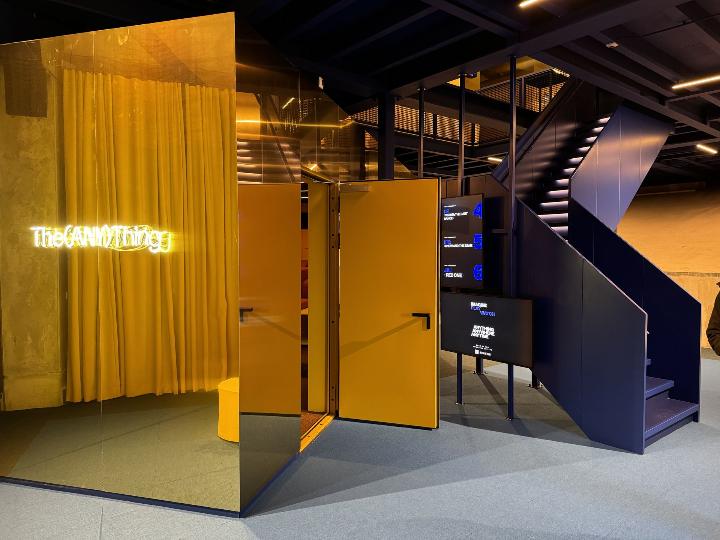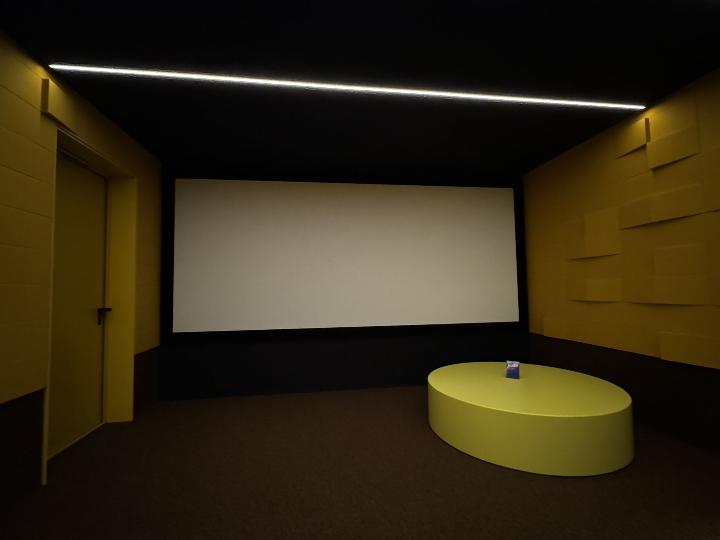As the cinema industry continues to evolve in response to changing consumer expectations and the ongoing challenge of competing with home entertainment options, there is a new type of ‘premium’ being tested in the cinema business. Two notable developments in the private cinema space - Tim League's upcoming Metro Private Cinema in New York and the established success of The(Any)Thing Cinema in The Netherlands - provide valuable insights into this emerging market segment, which offers the highest end of bespoke and on-demand ‘bijou’ cinema. With The(Any)Thing Cinema having operated for around four years now, since its first installation in Wijk bij Duurstede location, what lessons are there to be learned from this ‘new’ cinema concept?
Learning from European Innovation
The(Any)Thing Cinema has already demonstrated the viability of on-demand private cinema experiences, having successfully launched within Pathé Ypenburg in The Hague following earlier successes in Wijk bij Duurstede and Hotel New York in Rotterdam. With six dedicated private rooms accommodating two to five people, The(Any)Thing offers complete control over the viewing experience through its proprietary app, allowing patrons to select from over 1,000 films, control start times, pause the film and manage room settings including lighting, temperature and sound.
Tim League’s Metro Private Cinema, meanwhile, represents a significant scaling of this concept with 20 screens accommodating four to 20 people, positioned as "a night out" experience with gourmet dining and guest attendants. League's pricing strategy – USD $200 for a four-person mini cinema auditorium rising to USD $600 for larger rooms, plus USD $100 per person for food - reflects the premium positioning of the concept. Private cinema concepts are already well-established in China and broader Asia, where they have evolved into a mature market segment, but merely copying the Chinese model will not work for either Europe or US.
Operational Challenges and Solutions
The private cinema model presents several operational complexities that traditional multiplexes don't face. Staff requirements multiply significantly when managing multiple small rooms rather than large auditoriums. The provision of hot food service, which Metro Private Cinema plans with its gourmet menu featuring items like blue prawns and summer risotto, requires sophisticated logistics to ensure quality delivery to multiple small spaces simultaneously. Within a traditional multiplex environment this can be a challenge, though The(Any)Thing Cinema has solved this in Rotterdam by co-locating the cinema within the Hotel New York with access to its kitchen.
In Pathé Ypenburg, visitors can select from a range of premium snacks that go beyond what’s typically offered in regular cinemas, including hot snacks and a cheese platter (kaasplankje), as well as alcoholic beverages, of course.
Alcohol service, however, adds another layer of complexity, requiring trained staff and careful monitoring to ensure responsible service in an intimate setting. Perhaps most delicately, CCTV monitoring becomes essential to ensure appropriate behaviour in private spaces. Operators must be prepared to diplomatically intervene when couples become too "romantic" in the dark - a challenge that requires both technology and well-trained staff to handle sensitively.

Strategic Targeting and Market Segmentation
Success in private cinema requires precise targeting and promotion across distinct customer segments. Metro Private Cinema's positioning as a "special experience with dinner, friends and a movie" recognises this reality. Each segment demands different messaging and pricing strategies:
Families seek child-friendly environments with flexible timing and control over content, appreciating the ability to pause for bathroom breaks or manage children's attention spans.
Group Outings value the social aspect and exclusivity, willing to pay premium prices for celebrations, hen parties, or friend gatherings where talking during the film is not just acceptable but encouraged.
Couples on Dates represent perhaps the most lucrative segment, seeking intimate experiences with premium service and romantic ambiance.
Corporate Events require business-appropriate settings with potential for presentations, team building, or client entertainment, often with higher spending tolerance.
The(Any)Thing is also reaching a new audience segment: people who are more sensitive to stimuli. Through experience, The(Any)Thing has learned that different audiences with heightened sensory sensitivity find their way to the concept, as it allows them to enjoy cinema in a way that best suits their needs, including individuals with epilepsy, autism, or children who are sensitive to loud sounds or afraid of the dark in traditional cinemas.
There is no one-size-fits-all model when it comes to marketing private cinemas, including raising awareness of the concept in the first place.
Technology as Differentiator
The(Any)Thing's app-centric approach demonstrates how technology can enhance rather than complicate the experience. By allowing customers to control every aspect of their session, ranging from film selection to environmental controls to food ordering, the technology becomes invisible while delivering unprecedented personalisation. In particular, the ability to pause films functionality within the app enhances the guest experience by giving them more control over their personal screening.
Metro Private Cinema's approach of allowing talking and texting (a departure from Alamo Drafthouse's famously zero-tolerance policies) recognises that private spaces operate under different social contracts. As League notes, "You can text, as much as it pains me to say it. You can talk," acknowledging that private screenings create their own behavioural norms. There’s just that one activity that is not permitted in the dark, at least, only up to a point.

Market Expansion Potential
League's vision extends beyond New York, with "the intent to open more" locations, while The(Any)Thing's operators also plan to expand across Europe. This ambition reflects confidence in market demand, but success will depend on operators' ability to maintain service quality while scaling operations. There is also the question of whether this works best as a franchise concept, partnership, stand-alone or hybrid model.
The collaboration between traditional operators and innovative concepts, which is successfully demonstrated by Pathé's partnership with The(Any)Thing, suggests a future where established exhibitors integrate private cinema offerings into existing multiplexes rather than treating them as entirely separate ventures. However, this still leaves an opportunity for hotels and city-centre establishments to also explore this space, particularly as the high street moves from physical retail to a more experience economy focus.
The Innovation Imperative
The cinema industry needs more innovation like The(Any)Thing and Metro Private Cinema. As traditional exhibition faces ongoing challenges from streaming services and changing consumer habits, private cinema represents a differentiated offering that streaming cannot replicate, through the combination of premium technology, social experience, and personalized service in a luxurious environment.
However, success requires more than just installing seats in small rooms. Operators must master complex service delivery, develop sophisticated customer segmentation strategies, targeted marketing and invest in technology that enhances rather than complicates the experience. The early successes of The(Any)Thing and the ambitious scale of Metro Private Cinema suggest this market segment has significant potential, though only for operators willing to reimagine cinema as a hospitality experience rather than simply a content delivery mechanism.
Private Cinema Innovation: Lessons from The(Any)Thing for Metro Private Cinema